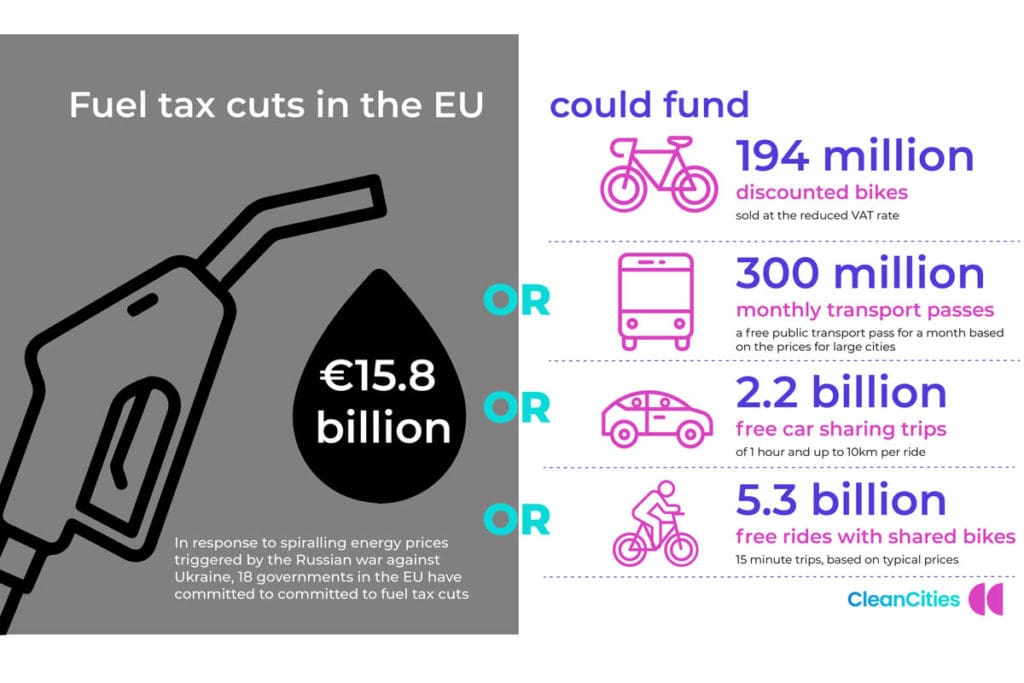Governments Slammed for Favouring Fuel Tax Cuts Over Sustainable Transport Incentives

Brussels, Belgium
Revenue forfeited by fuel tax cuts planned by many European governments could instead be used to provide 5.3 billion free bike share rides or 194 million discounted bikes for sale – offering a more effective response to spiralling energy prices, according to a report released last week by four cycling and clean city organisations.
Eighteen European governments have earmarked a total of €16 billion (A$24 billion) in fuel tax cuts, to provide price reductions at the pump, in response to skyrocketing energy prices accentuated by Russia’s invasion of Ukraine.
“Fuel tax cuts are not only expensive but also ineffective, as artificially lower prices incentivise more fuel consumption and profiteering oil companies will increase their prices in response,” says the report by Clean Cities Campaign, the European Cyclists’ Federation and the Confederation of the European Bicycle Industry and Cycling Industries Europe.
“The measures are also socially unfair, as the richest motorists receive eight times more public money than the poorest.
“Instead, two in three EU citizens (300 million people) could receive free public transport passes for one month, or up to 194 million Europeans – the combined population of France, Germany, Ireland and Poland – could be enabled to purchase cheaper bicycles thanks to VAT (value added tax) reductions recently made possible by changes in EU tax law.
“Alternatively, up to 2.2 billion free car sharing trips or 5.3 billion rides with shared bikes could be paid for.”
The report estimates the budget losses could rise to €52 billion (A$78 billion) if the reduced fuel tax measures are kept in place until the end of the year.
Clean Cities Campaign director Barbara Stoll said: “Subsidising the use of polluting cars does nothing to reduce our demand for Russian oil which funds the war in Ukraine.
“It’s crucial that our politicians choose what’s right for their citizens and the climate, measures that no longer keep us hostage to dangerous regimes.”
Similarly, European Cyclists’ Federation CEO Jill Warren said reduced VAT rates (the average rate in the EU is 21%) and other direct financial incentives for cycling would be “easy and cost-effective ways to reduce CO2 emissions and dependency on Russian oil imports”.
“European politicians have made promising statements and commitments for more cycling during the last year. We’re eager to see these commitments backed up by concrete changes in policy that can catalyse a shift towards more cycling throughout the EU,” she added.
Cycling Industries Europe CEO Kevin Mayne added: “During the pandemic, we showed that no other sector can transform urban mobility faster than cycling.
“If Europe wants to get out of fossil fuel dependency rapidly then cycling is the fast track.”
The European Commission recently published a REPowerEU plan calling for free bike sharing and micro mobility, cheaper public transport and subsidies for bike purchases.
